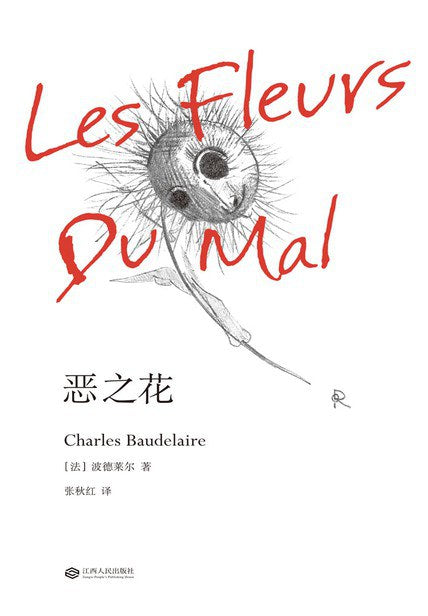WULOLIFE
《恶之花》 作者: [法]波德莱尔 译者: 张秋红 出版社: 江西人民出版社
《恶之花》 作者: [法]波德莱尔 译者: 张秋红 出版社: 江西人民出版社
Sale
Sold out
Regular price
€19,00 EUR
Regular price
Sale price
€19,00 EUR
Unit price
per
Tax included.
Shipping calculated at checkout.
Couldn't load pickup availability
Description
内容简介· · · · · ·
由一百多首诗歌组成的《恶之花》,由诗人精心安排为六个有机组成部分,有序地展开诗人的精神探索。
第一部分“忧郁与理想”,写忧郁,也写理想,忧郁是沉重的,理想是渺茫的。穿行在沉重的忧郁中。
第二部分“巴黎即景”,写的是诗人眼中的巴黎,或者说是心中的巴黎。这不是美丽的城市,不是繁华的“花都”,而是“熙熙嚷嚷的都市,充满着梦想的都市,/幽灵在大白天里拉着行人的衣袖!”义的大自然拉到光怪陆离的现代大都市,让人看到的却是一幅幅畸形、变态的图画。
第三部分以“酒”为题,写诗人的“以酒浇愁”、“以酒为乐”的无奈与悲凉。
第四部分“恶之花”,诗人从醉酒的幻景转向直面罪恶的“花朵”。
第五部分“叛逆”,是针对上帝的。在这里,该隐和撒旦都受到了赞美,因为他们是受害者、叛逆者。世人所希望的,是自己的灵魂能傍着撒旦“休息”。
第六部分“死亡”,在历经苦难之后,在阅尽丑恶之后,死亡,是但也是新的开始。
整首诗集以一首题为《旅行》的长诗作结,概括了诗人一生的求索。
作者简介· · · · · ·
夏尔·波德莱尔(Charles Baudelair, 1821-1867,法国诗人。作品有诗集《恶之花》和散文诗集《巴黎的忧郁》,另写有大量文学和美学论文。他被认为是使欧洲人的经验方式和写作方式发生重大变革的作家,他的美学理论在诗歌和艺术现代主义各流派灵感与理论的不尽泉源。
毕业于现任中国社会科学院外国文学研究所研究员,博士生导师,兼任该所学术委员会中国社会科学院比较文学研究中心主任。中国作家协会会员。
